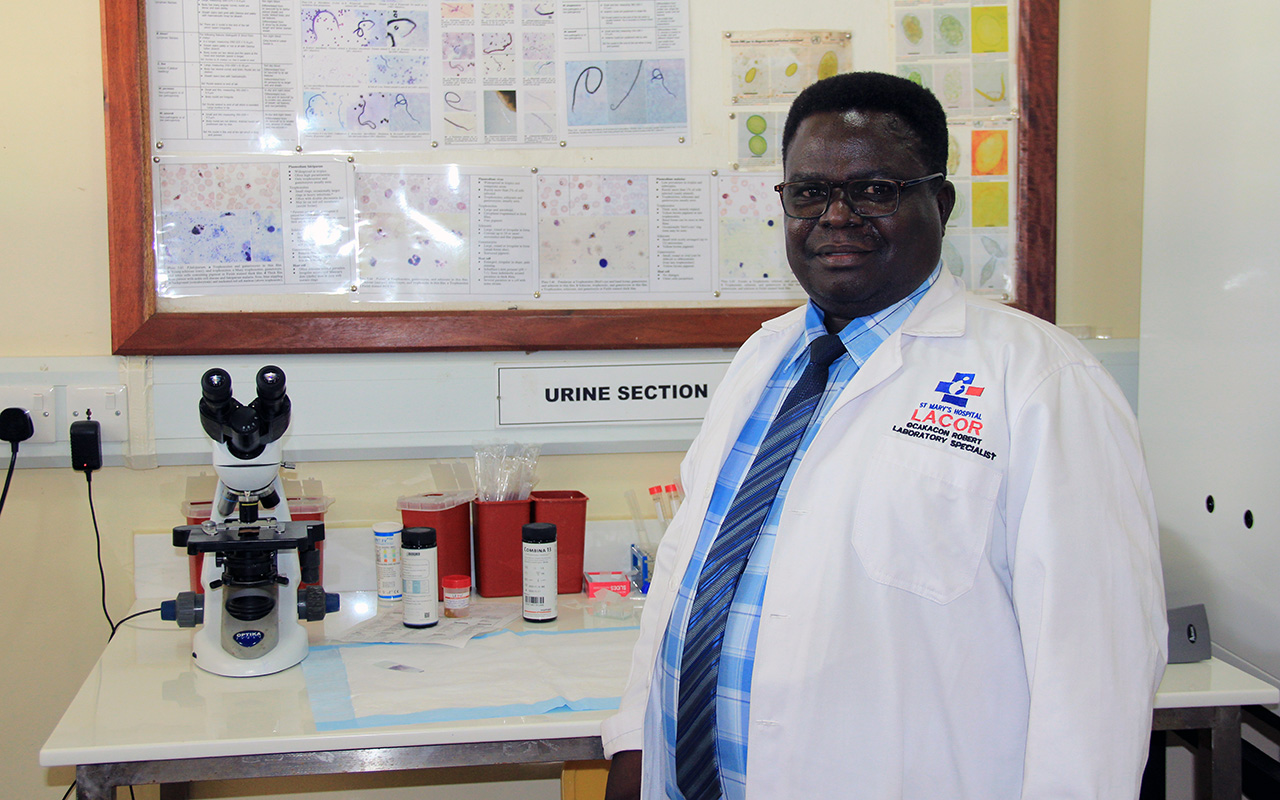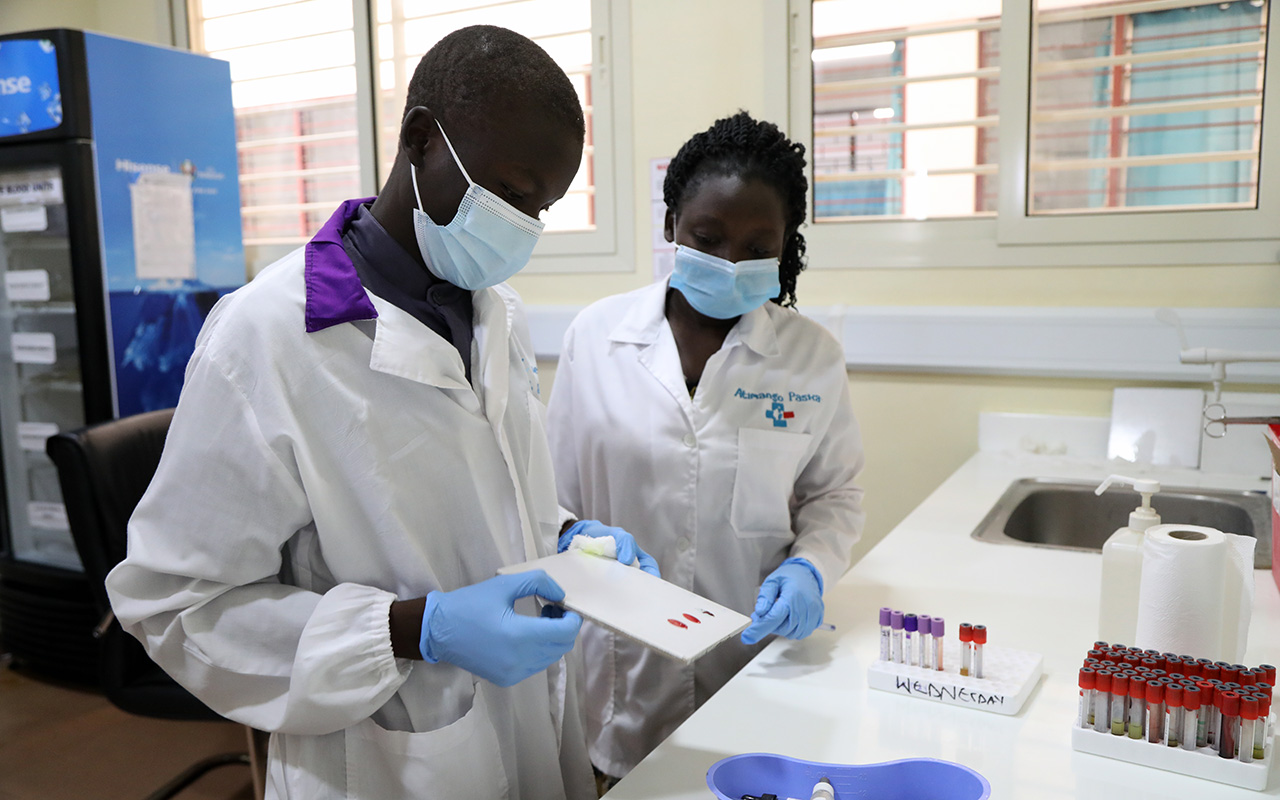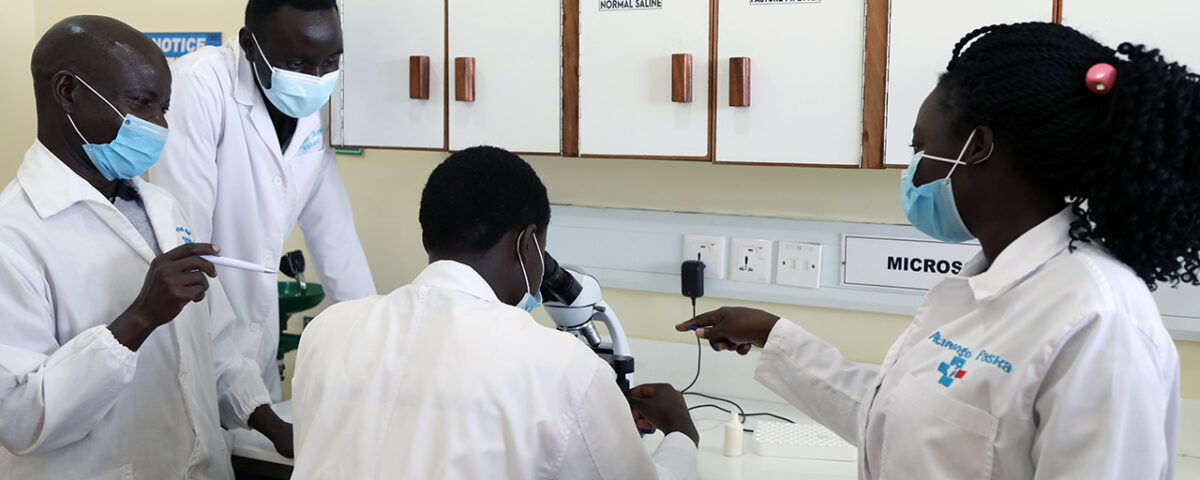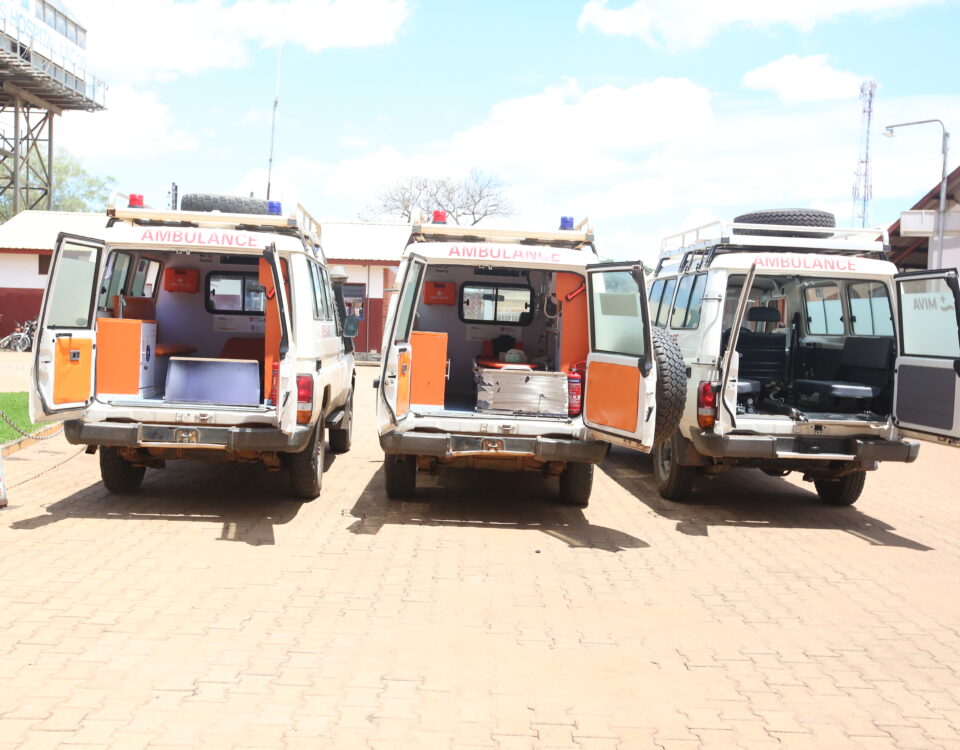In times of disease outbreaks, many turn to doctors and nurses for their lifesaving care, but the silent hero in the laboratory is not often spoken about.
Nestled in the vibrant landscape of Northern Uganda, Lacor Hospital’s laboratory has become a symbol of steadfast dedication and innovation. From its modest beginnings to its current status as a four-star facility, the lab’s journey is a testament to the resilience and vision of its team, led by the indefatigable Robert Ocakacon.
Over the last three decades, this lab has not only weathered the storms of numerous epidemics but has also emerged as a cornerstone of medical research and diagnostics in the region.

Ocakacon Robert, Principal Lab Scientist
When Robert Ocakacon joined Lacor Hospital as a lab technician nearly 25 years ago, the laboratory was a modest unit with limited resources. Despite these constraints, the lab played a crucial role during the HIV outbreak in Uganda, providing essential diagnostic services that were vital for managing the epidemic.
HIV was a huge burden in the early 1990s and the Italian Cooperation empowered the hospital in the fight.
Robert’s early years were marked by long hours and a steep learning curve, but his commitment drove him forward.
“I remember those early days vividly,” Robert recalls. “We had so little to work with, and the activities of the lab were still not so expanded. We had just restarted the lab assistant training school with about 20 students at the time.” The lab school had closed because of the LRA insurgency as most of the technical staff left.
Robert had to take up a managerial role in the lab and at the school as well. By 2004, he was made the head of the hospital’s laboratory. “I have seen this lab grow from a small room into what it is today,” he says.
The year 2000 came with one of the most challenging periods for Lacor Hospital—the Ebola outbreak. While many health facilities shut their doors for fear of the disease, Lacor Hospital remained open, its laboratory becoming a frontline defense.
 The CDC set up a lab for DNA testing to confirm cases, but Lacor’s lab continued to handle the bulk of the diagnostic work. The risks were immense, but Robert and his team persevered, driven by a sense of duty and compassion.
The CDC set up a lab for DNA testing to confirm cases, but Lacor’s lab continued to handle the bulk of the diagnostic work. The risks were immense, but Robert and his team persevered, driven by a sense of duty and compassion.
“The Ebola outbreak was a true test of our resolve,” says Robert. “We were dealing with a deadly virus, but closing our doors was never an option. The community needed us, and we were determined to be there for them.”
The disease stealthily found its way into the hospital and by the time it was discovered, it had left dead bodies in its trail. The staff were discouraged by the deaths of their colleagues and many wanted to leave.
“But Dr. Lukwiya said ‘If you leave, supposing you fall sick from outside, who will work on you?’” Robert recalls. This kept the hospital running although Dr. Matthew Lukwiya himself didn’t make it. Robert was on call the night before he died and did the sample collection, grouping, and crossmatching for blood transfusion.
Unfortunately, when he returned to work the following day, Dr. Matthew was no more. It was a moment of reckoning for the hospital as the team leader had fallen.
“It sent a lot of cold,” Robert recounts. “Everybody now was asking ‘What’s the way forward?’ There was a lot of scare, but people were told to stay calm and continue to do their jobs.”
After Dr. Matthew, the hospital didn’t lose any other staff. Robert and his team, though on the frontline, upheld the highest standards of safety in the lab and none of them got infected. “We had to take every sample as though coming from an ebola-infected person.”
Over the years, the lab has faced numerous other challenges, including cholera outbreaks and the recent COVID-19 pandemic. During the pandemic, more than half of the lab staff were quarantined, yet the lab continued to operate, even with the shortage of human resources.
“COVID-19 was unlike anything we had faced before,” Robert reflects. “With so many of our team in quarantine, it was a struggle to keep up with the demand. But we adapted, we innovated, and we kept going.”
Robert’s journey from a lab technician to the head of the department mirrors the lab’s own evolution. Under his leadership, the lab embraced the Stepwise Laboratory Quality Improvement Process Towards Accreditation (SLIPTA) and achieved a four-star rating, the first in the region to do so.
This recognition is a testament to the lab’s commitment to quality, reliability, and excellence in diagnostics and research.
“Achieving the four-star rating was a milestone for us,” Robert says with pride. “It was a recognition of our hard work and dedication to providing the best possible service to our community.”
 Today, Lacor Hospital’s laboratory is not just a diagnostic center but a hub for medical research and training. It has contributed to numerous studies and has been pivotal in the fight against various epidemics.
Today, Lacor Hospital’s laboratory is not just a diagnostic center but a hub for medical research and training. It has contributed to numerous studies and has been pivotal in the fight against various epidemics.
Robert Ocakacon’s story is one of resilience, dedication, and visionary leadership. Through his eyes, we see the rise of a laboratory that has become a cornerstone of healthcare in Northern Uganda, continually pushing the boundaries of what is possible in medical diagnostics and research.
“Looking back, I am proud of what we have achieved,” Robert concludes. “But I am even more excited about the future. There is still so much more we can do to improve healthcare in our region.”
“We still have a few things to achieve, though and we’re on the right track. We’re trying to work hard to achieve the standards and this is going to be through accreditation.”
Robert and his team have kept their eyes on quality and that has brought in so many researchers from the international stage to collaborate with the hospital in different areas, including vaccine development. Robert is worried about the increasing exodus of staff for greener pastures after the hospital has invested and trained them, but having a training school on the ground has created a buffer zone for the lab.
Robert’s leadership has been instrumental during difficult times, ensuring that the lab maintained its operations despite the circumstances.
As he grows older, Robert plans to retire and pursue his passion for farming as well as teaching and mentoring the next generation of lab professionals.


